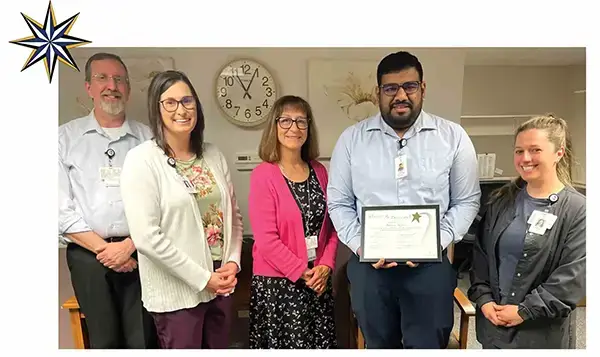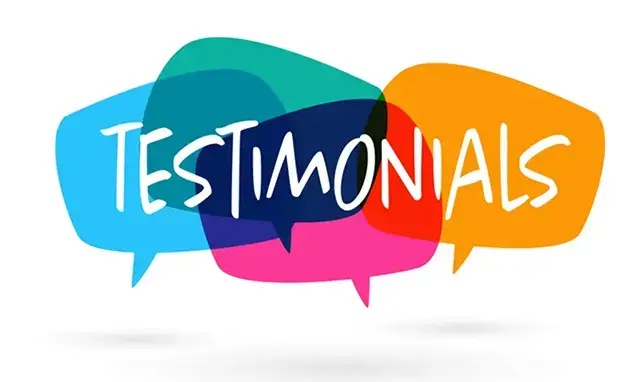By: Melanie Koenig May 12, 2025
You’ve probably heard the term “inner child” thrown around a lot lately. It’s become a bit of a buzzword in personal growth spaces and on mental health TikTok—but what does it actually mean? And why does it feel especially relevant to moms?
I recently sat down with Liv Nelson, MS, LPC from Reedsburg Area Medical Center to talk about inner child therapy—what it is, why it matters, and how our early experiences can shape how we show up in parenting, relationships, and everyday emotional reactions.
Have You Ever Reacted in a Way That Felt Bigger Than the Moment?
Let’s talk about those moments when something small sets off a big reaction — the kind that feels rooted in something deeper. That’s where inner child work comes in.
What is Inner Child Work?
Inner child work is the practice of exploring how your own childhood experiences—whether joyful, difficult, or a mix of both—impact how you respond as an adult. It’s not just about obvious trauma. Even subtle, consistent experiences can leave emotional imprints.
Liv shared that becoming a parent often holds up a mirror to old emotional patterns we didn’t realize still needed care.
It’s Not About Blame—It’s About Understanding.
You don’t have to have experienced dramatic trauma to carry an unhealed inner child. Many people had a “good childhood” but still internalized unhelpful lessons:
- Love is earned, not given freely.
- Big emotions make people uncomfortable.
- You need to be perfect to be accepted.
Childhood memories, even the small, forgettable ones, shape our internal blueprint for love, safety, communication, and trust. Those early messages often resurface in our adult emotional lives.
Real-Life Ways Your Younger Version Might Still Be in the Driver’s Seat
In parenting:
- If your feelings were often dismissed (“You’re too sensitive”), you might now struggle to validate your child’s emotions.
- If you had to be the “good kid,” your child acting out may trigger panic—it unconsciously threatens your sense of worth.
- If being vulnerable wasn’t safe, your child’s messiness or neediness may feel unbearable.
In relationships:
- If a parent was inconsistent, you might find yourself obsessively confirming plans or seeking constant reassurance.
- If a parent used alcohol to cope, your partner’s casual drinking may trigger disproportionate anxiety or anger.
- If love felt unpredictable, you may now feel safest in relationships where you’re always bracing for something to go wrong.
So How Do We Begin to Heal?
We begin by getting curious, not critical.
Reflection Prompt to Aid Your Healing Process
Think of a moment recently where you felt deeply triggered. Ask yourself:
- What exactly did I feel?
- When was the first time I remember feeling that way?
- What did I learn to believe in situations like this?
- What did I need in that moment that I didn’t get?
- What can I give myself now—grace, boundaries, rest, a different response?
Inner Child Exercises You Can Try At Home:
Liv emphasized that healing is a journey, not a destination. And you don’t have to start with therapy (although it can help). Here are some practical ways to start reconnecting with your younger self:
- Ask yourself: What am I really reacting to and why?
- Journal prompt: What did I need as a child that I didn’t get consistently? How is that showing up in my parenting or relationships today?
- Talk it out: Healing often happens in safe conversations—with a trusted friend, partner, or therapist.
- Read and reflect: There are so many resources on reparenting, inner child therapy, and emotional resilience.
- Apologize and repair: Even to your toddler. A simple “I’m sorry” can be deeply healing—for both of you.
Some Final Reflections to Sit With:
When we’re the parent now, our kids’ behavior can unexpectedly reactivate old emotional pain and the stakes feel higher.
For example:
- If anger wasn’t “allowed” in your home, you may freeze when your toddler yells.
- If you felt invisible as a kid, your child ignoring you might feel like deep rejection.
- If your worth was tied to performance, your child struggling may feel like you’re failing.
These aren’t just overreactions. They’re echoes.
And without slowing down to explore them, they quietly shape our behavior, reactions, and parenting choices.
You Don’t Have to “Fix” Everything. Awareness Is a Powerful Start.
Inner child work isn’t about blaming your parents or finding something wrong with you—it’s about getting curious. It’s about noticing patterns, connecting the dots, and gently asking: Is this still working for me?
You don’t have to have all the answers right now. You don’t need to do this perfectly.
And if you’re a parent worried about “messing up” your own kids? The fact that you’re even thinking about this says a lot. No one gets it right all the time. But being willing to reflect, apologize, and grow alongside your kids…that’s powerful. That’s healing.
Whether you’re navigating your own inner child wounds or simply exploring how your past experiences show up in your present life, you’re not alone. And every bit of insight you gain is a step toward showing up with more intention and less shame.







